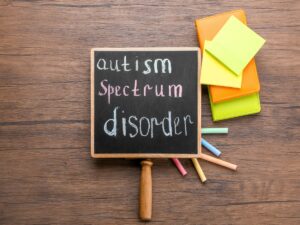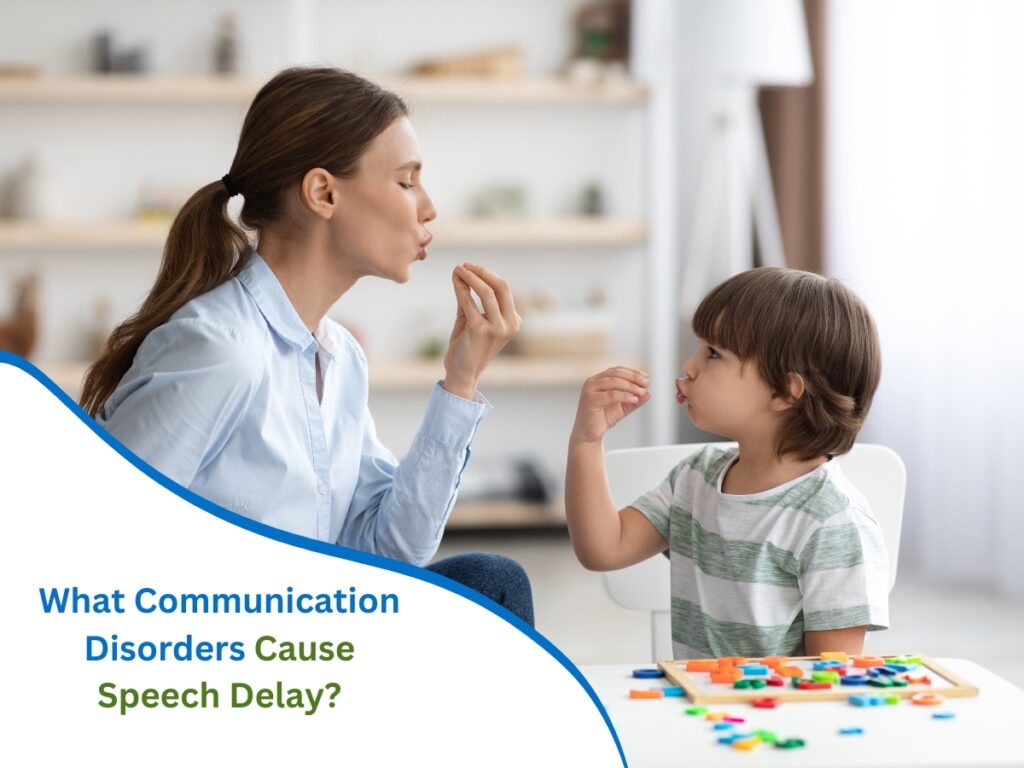Speech delay in children can be concerning for parents, as it impacts not only a child’s ability to communicate but also their social development and confidence. Various factors contribute to speech delay, and understanding these causes is key to addressing the issue early. This article explores some of the common communication disorders that can lead to speech delay and why early intervention is essential.
What is speech delay, and why is it important to address it early?
Speech delay refers to a delay in a child’s ability to produce or understand speech compared to what is typical for their age. This can involve delayed speech sounds, difficulty forming words or sentences, or challenges in understanding language. Addressing speech delay early is crucial, as it allows for targeted interventions that can help the child develop essential communication skills.
- Early intervention can significantly improve speech and language development.
- Addressing speech delay can prevent future academic struggles.
- It helps in building social skills and confidence in children.
- Early therapy can prevent the development of more complex speech disorders.
What are the common causes of speech delay in children?
There are various reasons why a child might experience a delay in speech. Understanding these causes can help parents and caregivers seek appropriate support. Some of the common causes include:
- Developmental disorders: Conditions such as Down syndrome or cerebral palsy can impact speech development.
- Hearing impairments: Hearing loss can make it difficult for children to hear the sounds and words needed to develop language.
- Speech or language disorders: Conditions like apraxia of speech or speech delays can directly affect the child’s ability to articulate words.
- Autism Spectrum Disorder (ASD): Children with ASD often struggle with communication, which may include speech delay.
- Environmental factors: Lack of exposure to verbal communication can contribute to speech delay, mainly if the child has limited interactions with caregivers or peers.
How can autism spectrum disorder contribute to speech delay?
Autism Spectrum Disorder (ASD) is a developmental condition that often presents with challenges in communication. Children with ASD may experience speech delays for several reasons, including difficulties in understanding or using language effectively.
- Social communication challenges: Children with ASD may struggle with the social use of language, which can delay speech development.
- Limited verbal expression: Some children may not develop speech at all or may have limited speech, preferring non-verbal communication methods such as gestures or pictures.
- Repetitive behaviours: Repetitive behaviours, such as echoing words or phrases (echolalia), can be a sign of speech delays in children with autism.
- Difficulty with language comprehension: Children with ASD may struggle to understand the meaning of words or follow verbal instructions, further delaying speech development.

What role do hearing impairments play in speech delay?
Hearing impairments are one of the most common causes of speech delay. When a child cannot hear certain sounds, it can significantly hinder their ability to learn language and communicate effectively.
- Sensorineural hearing loss affects the inner ear and can result in delayed speech and language development.
- Conductive hearing loss: This happens when a blockage or issue in the ear canal, eardrum, or middle ear interferes with the proper transmission of sound.
- Delayed speech due to unclear auditory feedback: Children with hearing impairments may not hear their speech clearly, making it difficult to imitate sounds and form words correctly.
- Early Intervention: Early intervention can be crucial for children with hearing impairments. It can help the intervention, such as speech therapy, and the use of hearing aids can be essential in helping your child learn to talk and improve speech development.
How do developmental delays affect speech and language development?
Children with developmental delays often experience challenges in various areas, including speech and language development. These delays can be caused by a variety of factors, such as genetic conditions, brain development issues, or problems during birth.
- Global developmental delay refers to children who experience delays in multiple developmental areas, including speech, motor skills, and cognitive abilities.
- Cognitive delays: Children with cognitive delays may struggle to understand or use language in the typical way, which can result in delayed speech.
- Motor skills delays: Speech production relies on fine motor control of the lips, tongue, and mouth. Children with delays in motor development may struggle with articulation and speech clarity.
- Physical or neurological conditions: Conditions like cerebral palsy or brain injuries can also contribute to speech delays by affecting the brain’s ability to process language.
Tailored interventions like speech therapy and early childhood programs are vital for fostering language skills and supporting a child to overcome developmental delays.
Are environmental factors behind the causes of speech delay?
While biological factors are often the root cause of speech delay, environmental factors can also play a significant role. Children who grow up in environments that do not encourage or support language development may experience delays. Some of these factors include:
- Limited exposure to language: Children who do not hear enough language from their caregivers or peers may have difficulty developing speech and language skills.
- Lack of stimulation: A lack of opportunities for interaction and play can hinder speech development, which is critical for language learning.
- Trauma or neglect: Children who experience emotional trauma, neglect, or inconsistent caregiving may have delayed speech development due to a lack of secure attachment and social interaction.

When should you seek professional help for speech delay and communication disorders?
If you notice any of the following signs in your child, it may be time to seek professional help:
- Failure to Meet Speech Milestones: If your child is not hitting typical speech milestones by the expected age.
- Limited Vocabulary: If your child is not using an adequate number of words for their age.
- Trouble Understanding Language: If your child struggles to understand simple instructions or concepts.
- Speech Clarity Issues: If your child’s speech is difficult to understand by others.
- Behavioural Issues: If speech delay is causing frustration or behavioural issues.
Seeking help from professional speech therapy services early ensures that your child receives the appropriate therapy and support to address speech delay and communication disorders.
The importance of early intervention
Speech delay can be caused by various factors, from hearing impairments to developmental disorders. Early identification and intervention are critical in managing speech delays and providing children with the support they need to communicate effectively. If your child is showing signs of speech delay, it’s essential to seek professional help as soon as possible to ensure the best outcomes.
At Auburn Health Centre, we provide personalised, compassionate care to help children and families address speech delays and communication disorders. Our NDIS therapeutic support services, including speech therapy, early childhood intervention, and psychology, are designed to support your child’s unique needs. With flexible scheduling and a team dedicated to your child’s success, we are here to help you on every step of the journey. Reach out to Auburn Health Centre today to learn how we can support you and your family!


